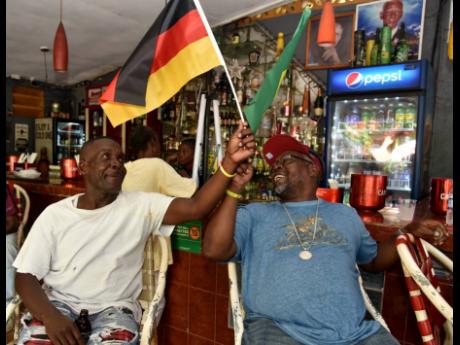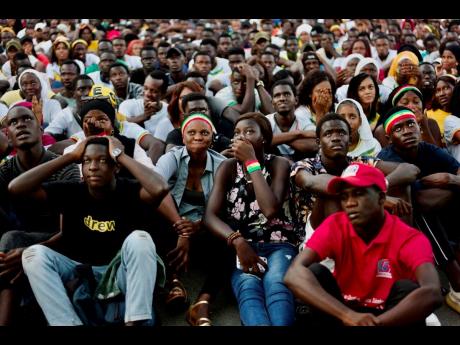Bosses urged to embrace World Cup to meet goals
With fears that local productivity could fall, the 2022 FIFA World Cup presents a dilemma for bosses torn between allowing staff to enjoy what is dubbed the greatest show on Earth or impose strict measures to tune it out and continue with business as usual.
But Lois Walters, president of the Human Resource Management Association of Jamaica, believes that moving to tighten supervision and rein in inattentive workers “would be a mistake as it can cause more harm than good”.
Instead, she suggested in a Gleaner interview that supervisors use this time to promote an environment of accountability and trust within their teams, with emphasis on deliverables and high performance, as this would prevent staff from taking more time off than necessary.
“Given that we live in a low-trust society, most persons would typically expect that national productivity would decrease,” Walters admitted.
But, she argued, employers should encourage staff to be accountable as they are “not looking for opportunities not to be productive.
“Let them know you care, and this will boost long-term engagement from the employees even if productivity may dip somewhat,” she said.
According to Walters, organisations should also implement flexible work schedules so that “die-hard” football fans might maintain high-level work while still being engaged in the matches.
“Both males and females are football fans and introducing fun at work could increase bonding in the team and therefore reduce team conflicts,” she noted.
Businesses could, for example, organise themselves into what she called “World Cup teams” in order to promote friendly competition or to host an “organisation-wide World Cup trivia game”, where to end the of the tournament staff might be fêted to food and beverages while taking part in a celebratory gathering.
“[You] can [also] examine the marketing techniques of the companies during the World Cup and see what can be applied to your organisation,” she said.
The football showpiece, which got under way in Qatar on Sunday, will wrap up on December 18.
David Wan, president of the Jamaica Employers' Federation, said that although he does not anticipate any major disruptions, there would be noticeable impact across work departments.
He told The Gleaner on Monday that while the World Cup distraction was comparable to the Olympic Games or other major sporting events, the issue was neither new nor long-lasting.
Wan added that while most companies would try to leverage the games to generate more business, he urged moderation and caution in attempting to accommodate employees who wished to watch the matches while at work.


